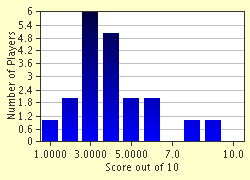Quiz Answer Key and Fun Facts
1. Which of the following is NOT what Plotinus considered as the nature of the One (i.e 'God')?
2. St. Augustine of Hippo contended that absolute truths (he uses examples such as mathematical truths, logical truths) are only comprehensible to men due to what?
3. Dionysius the Areopagite or simply Pseudo-Dionysius was famous for introducing the notion of knowing God in two ways - but what are these 'two ways'?
4. John Scotus Eriguena is a famous philosopher, especially since his name and portrait is found in a currency. He posited four divisions of Nature, but what did he mean by 'Nature'?
5. St. Anselm's ontological argument for the existence of God was different from St. Aquinas' cosmological argument in what way?
6. The problem of universals was a big controversy during the period of medieval philosophy, and indeed the problem still continues today. There were three main positions which sought their own solutions to the problem. These positions were ____?
7. St. Thomas Aquinas was very Aristotelian since he borrowed many of his ideas from Aristotle, and not Plato. But which of these is strictly his own philosophy and not Aristotle's?
8. Ancius Manlius Severinus Boethius, or more simply just Boethius, wrote down a famous book, what scholars call his magnum opus, titled what?
9. According to St. Augustine, what role did the Church exercise over the State?
10. Theology and Philosophy are different disciplines, each respectful of the other. During the medieval period, however, Theology enjoyed primacy over every other discipline such that even philosophy was just ultimately a handmaiden to theology. Which of the following makes the case for this?
Source: Author
pilosopiya
This quiz was reviewed by FunTrivia editor
looney_tunes before going online.
Any errors found in FunTrivia content are routinely corrected through our feedback system.


